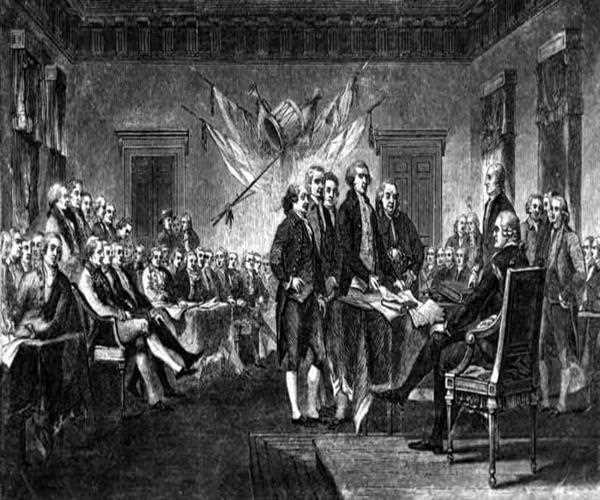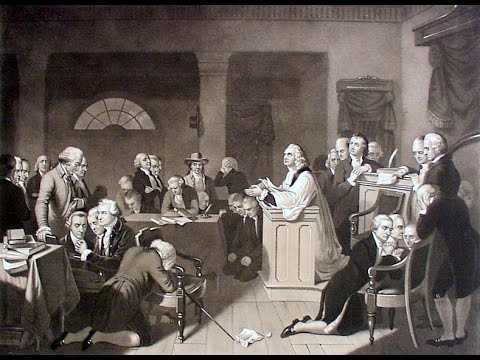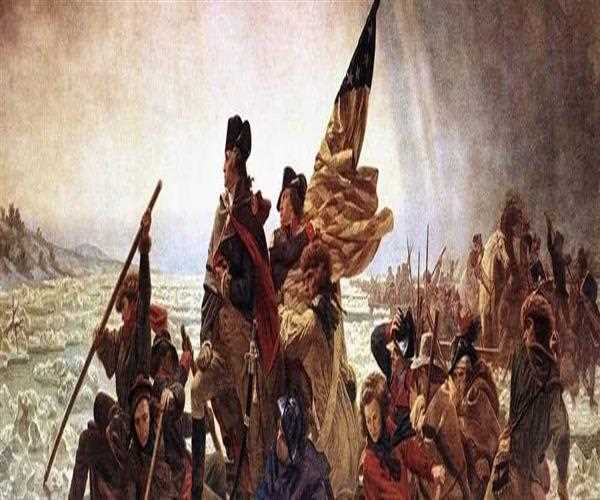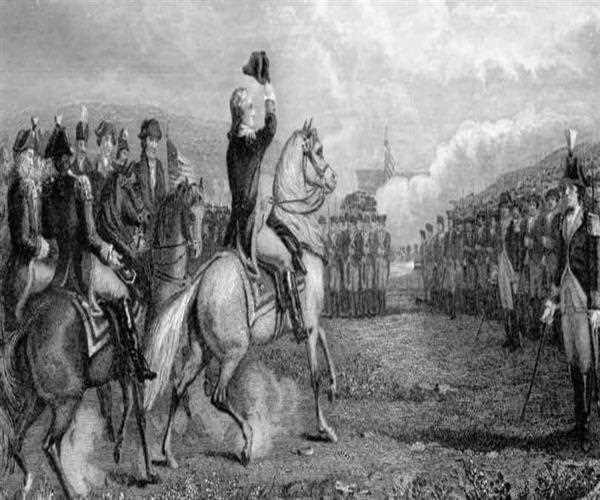* Revolutionary War*

The Continental Congress filled in as the legislature of the 13 American provinces and later the United States starting from 1774 until 1789. The First Continental Congress, which involved representatives from the provinces, met in 1774 in response to the Coercive Acts, a progression of measures forced by the British government on the states because of their protection from new expenses. In 1775, the Second Continental Congress met after the American Revolutionary War (1775-83) had just started. In 1776, it made the earth-shattering stride of announcing America's autonomy from Britain. Five years later, the Congress approved the main national constitution, the nation would be represented until 1789 under the Articles of Confederation when it was supplanted by the present the Constitution of U.S.
THE FIRST CONTINENTAL CONGRESS

On 5th of September, 1774, delegates from every one of the 13 provinces aside from Georgia (which was battling a Native-American uprising and was subject to the British for military supplies) met in Philadelphia as the First Continental Congress to arrange provincial protection from Parliament's Coercive Acts. The agents incorporated various future illuminating presences, for example, future Presidents George Washington (1732-99) of Virginia and John Adams (1735-1826) of Massachusetts, and future U.S. Preeminent Court Chief Justice and negotiator John Jay (1745-1829) of New York. The Congress was organized with accentuation on the balance of members, and to advance free open deliberation. After much exchange, the Congress issued a Declaration of Rights, avowing its faithfulness to the British Crown, however, debating the British Parliament's entitlement to assess it. The Congress additionally passed the Articles of Association, which approached the states to prevent bringing in products from the British Isles starting on 1st of December, 1774, if the Coercive Acts were not revoked. Should Britain neglect to review the pioneers' grievances in an auspicious way, the Congress announced, at that point, it would reconvene on 10th of May 1775, and the settlements would stop to send out products to Britain on 10th of September 1775. In the wake of declaring these measures, the First Continental Congress disbanded on 26th of October, 1774.
THE REVOLUTIONARY WAR

As guaranteed, Congress reconvened in Philadelphia as the Second Continental Congress on 10th of May 1775 and by then the American Revolution had just started. The British armed force in Boston had met with equipped protection on the morning of 19th of April, 1775, when it walked out to the towns of Lexington and Concord to grab a store of weapons held by provincial Patriots who had stopped to perceive the expert of the regal legislature of Massachusetts. The Patriots drove the British endeavor back to Boston and laid attack on the town. The Revolutionary War had started.
FIGHTING FOR RECONCILLIATION

In spite of the fact that the Congress proclaimed its tolerating dependability to the British Crown, it likewise found a way to save its rights by dint of arms. On 14th of June, 1775, a month after it reconvened, it made a unified provincial battling power, the Continental Army. The following day, it named George Washington as the new armed force's president. The next month, it issued its Declaration penned by John Dickinson of Pennsylvania, a veteran of the Initial Congress whose "Letters from a Farmer of Pennsylvania" (1767) had stirred restriction to before royal measures, and by a newcomer from Virginia, Thomas Jefferson (1743-1826). With an ultimate goal to dodge a full-scale war, Congress coupled this affirmation with the Olive Branch Petition, an individual interest to Britain's King George III (1738-1820) requesting that he enable the pioneers to determine their disparities with Britain. The ruler expelled the appeal went out of the hand.
DECLARING INDEPENDENCE
For over a year, the Continental Congress directed a war against a nation to which it broadcasted its dedication. Truth is told, both the Congress and the general population it spoke to were partitioned on the topic of freedom even following a time of open fighting against Great Britain. Ahead of schedule in 1776, various elements started to reinforce the call for detachment. In his blending handout "Presence of mind," distributed in January of that year, the British foreigner Thomas Paine (1737-1809) laid out a persuading contention for freedom. In the meantime, numerous Americans came to understand that their military won't be equipped for overcoming the British Empire all alone. Autonomy would enable it to frame collusions with Britain's effective rivals– France was at the bleeding edge of everybody's brain. In the interim, the war itself evoked antagonistic vibe toward Britain among the citizenry, preparing for freedom.
In the spring of 1776, the temporary frontier governments started to send new guidelines to their congressional agents, at a slant or specifically enabling them to vote in favor of freedom. The temporary legislature of Virginia went further: It educated its appointment to present a proposition for freedom before Congress. On 7th of June, Virginia assign Richard Henry Lee (1732-94) confirmed to his guidelines. Congress put off a last vote on the proposition until 1st of July, however, delegated a board of trustees to draft a temporary revelation of autonomy for utilizing should the proposition pass.
The panel comprised of five men, including John Adams and Benjamin Franklin (1706-90) of Pennsylvania. Yet, the affirmation was basically crafted by small-time, Thomas Jefferson, who penned an expressive safeguard of the regular privileges surprisingly, of which, he charged, Parliament and the Lord had endeavored to deny the American country. The Continental Congress made a few amendments to Jefferson's draft, expelling, in addition to other things, an assault on the establishment of subjugation; yet on 4th of July, 1776, Congress voted to favor the Declaration of Independence.
WAGING THE WAR
The Declaration of Independence enabled Congress to look for unions with outside nations, and the juvenile U.S. shaped its most imperative collusion right on time in 1778 with France, without the help of which America may well have lost the Revolutionary War. In the event that the Franco-American partnership was one of Congress' most prominent triumphs, financing and providing the war were among its most exceedingly terrible disappointments. Without a previous framework, Congress battled all through the war to give the Continental Army sufficient supplies and arrangements. Fueling the issue, Congress had no system to gather duties to pay for the war; rather, it depended on commitments from the states, which by and large coordinated whatever income they raised toward their own particular needs. Thus, the paper cash issued by Congress rapidly came to be viewed as useless.
Cheers!